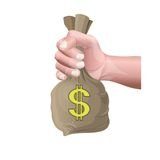HOW TO INVEST IN BITCOINS
Let’s say you’ve got your hand s on a pretty large sum of money. The first thing you ought to do is handle any withstanding debt that you may have; then, you should establish a sum of money that you need for immediate expenses and small extravaganzas. As for the amount you have left, it’s best to invest it in order to start producing revenue for the years to come.
s on a pretty large sum of money. The first thing you ought to do is handle any withstanding debt that you may have; then, you should establish a sum of money that you need for immediate expenses and small extravaganzas. As for the amount you have left, it’s best to invest it in order to start producing revenue for the years to come.
One of the best investment opportunities in the world is gold. This precious metal has a constantly high value and is considered to be an actual hedge against inflation and other similar processes, so it’s rather safe to buy even in these times of financial uncertainty. You can purchase it in whatever shape suits you best, whether it’s bullion, stocks or derivatives. However, keep in mind that the first two are more long-term oriented, while the last one can bring you quick profits, but is pretty risky at the same time. Just make sure you have the appropriate storage means, so that you won’t be exposed to the risk of being robbed.
Another good idea would be to acquire stocks or shares in a company. If the firm obtains profits, your investment will increase in value; contrarily, if it goes bankrupt, your shares will also plummet to the ground. This is why it’s very important that you first take some time and analyze the current situation of the company in which you’re about to invest. Make sure you take a look at its policies towards investors, as well as any other matters that may be of interest to you. This way, there won’t be any unpleasant surprises for you down the way.
If gold and stocks aren’t exactly your thing, there’s always the alternative of buying real estate. This kind of purchase can be quite expensive, so it’s not something to do on a whim. Still, some people say it is worth the trouble, since it can bring you a rather large amount of income in the following years, especially if you decide to rent it or re-sell the property when prices have gone up.
Finally, be aware that most experts agree it’s best to create a diversified portfolio of investments. Use part of your money for larger purchases, such as real estate, another part for stocks and shares, and the rest for commodities. This way, you will be “covered” no matter what happens to a particular market or to the economy itself.